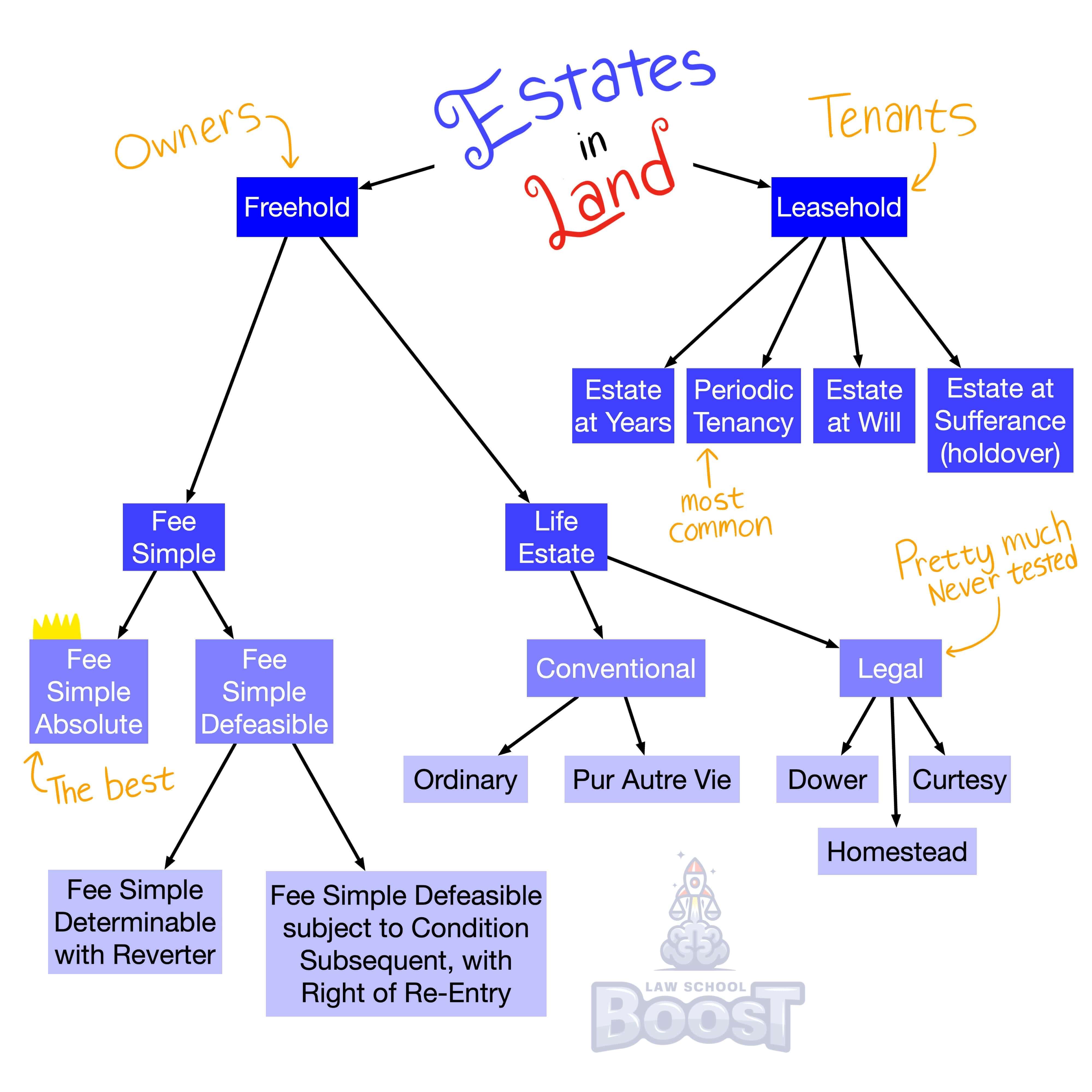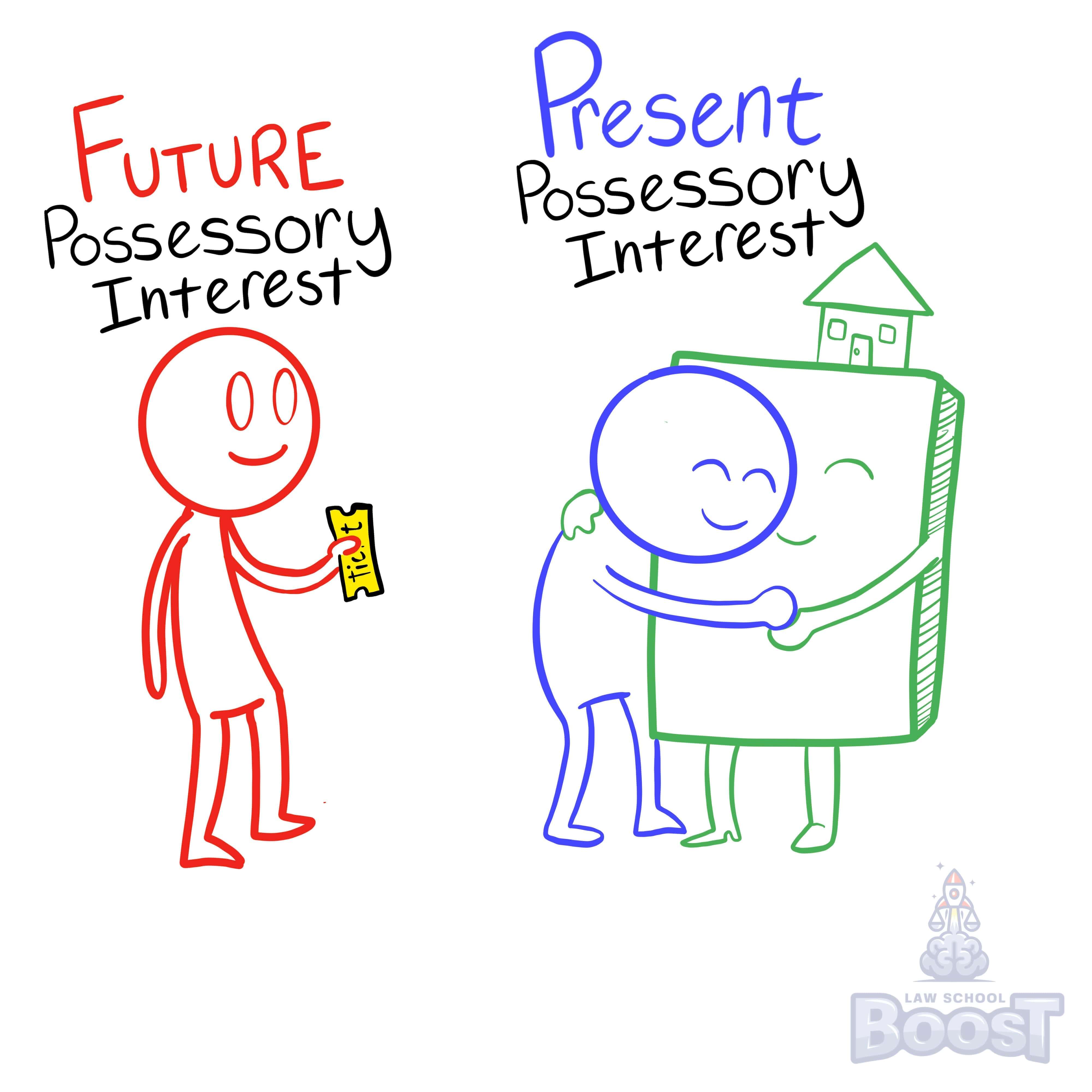😀
Real Property • Future Interests
PROP#023
Legal Definition
Under common law, a contingent remainder is destroyed if it fails to vest before or on termination of the preceding estate. Today, most states have abolished this.
Plain English Explanation
"Vesting" means that certain predetermined rules were met, which caused a person's rights to become effective. For example, startup companies usually use vesting as a way to give out equity in their company. A startup company may offer you a total of 5% in the company vested over 5 years, which means you get 1% per year for 5 years and, after 5 years, you are fully vested.
In property law the rules are identified in the conveyance itself, and once those rules are satisfied, a potential recipient's interest have "vested."
Let's pick apart an example:
Oz conveyed Blackacre "to Amy for life, then to the heirs of Bob."
What do we know from this conveyance? We know that Amy has a life estate, and we know that Oz has a reversion. What about Bob? Well, Bob get's nothing in this conveyance. The conveyance is to the heirs of Bob, and heirs are only identified after death. In other words, if Bob outlives Amy, then Bob's heirs are never identified, which means they never vest, which means their remainder is destroyed because it was contingent on Bob dying before Amy. As such, the property reverts back to Oz.
In property law the rules are identified in the conveyance itself, and once those rules are satisfied, a potential recipient's interest have "vested."
Let's pick apart an example:
Oz conveyed Blackacre "to Amy for life, then to the heirs of Bob."
What do we know from this conveyance? We know that Amy has a life estate, and we know that Oz has a reversion. What about Bob? Well, Bob get's nothing in this conveyance. The conveyance is to the heirs of Bob, and heirs are only identified after death. In other words, if Bob outlives Amy, then Bob's heirs are never identified, which means they never vest, which means their remainder is destroyed because it was contingent on Bob dying before Amy. As such, the property reverts back to Oz.
Hypothetical
Hypo 1: Oz conveyed Blackacre "to Amy for life, then to Bob if he reaches the age of 18." Bob is currently 15. 1 year after this conveyance, Amy dies. Result: Amy has a life estate. Bob has a contingent remainder in the property. The contingency to required for him to vest is turning 18 years old. Unfortunately, when Amy died, Bob was only 16 years old. Thus, the contingency is not met, which means Bob's remainder is destroyed under common law.
Visual Aids


Related Concepts
In assessing a contingent remainder what is the doctrine of merger?
What are future interests?
What is a class gift?
What is a contingent remainder?
What is an executory interest?
What is an indefeasibly vested remainder?
What is a remainder?
What is a shifting executory interest?
What is a springing executory interest?
What is a vested remainder subject to open?
What is a vested remainder subject to total divestment?
What is the Doctrine of Worthier Title?
What is the Rule in Shelley's Case?
What is the Rule of Convenience?


